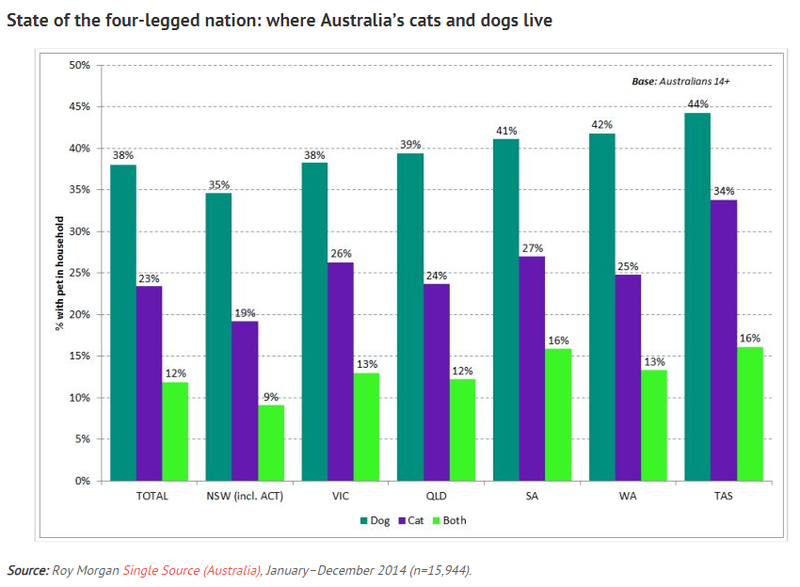
Purchasing Pet-Friendly Properties in Port
REAL ESTATE
Australia has one of the highest pet ownership rates in the world with 62 per cent (5.7 million) households owning a pet.
38.5 per cent of these own dogs (2 in 5 households) and 29.2 per cent have cats (3 in 10 households). In Queensland 39 per cent of households have dogs alone.
In a recent survey by Wotif.com, it revealed that 91 per cent of respondents have a pet and 49.1 per cent of them like to take them on holiday.
Here in Port Douglas, we are adjusting to this demand accordingly with Airbnb’s, cafes, restaurants and town planning now catering for off-leash areas, doggy snacks and pet-friendly holiday accommodation.
Now with the insurgence of ‘Pandemic Pets’, where people have found that working at home enables them to have time for a furry companion, these figures have surged.
Canberra RSPCA has seen adoption rates double over this time and this is echoed throughout the country.
This shift in work environment (with new furry work colleagues) and a pandemic push for many to have the seachange they have promised themselves, has lured many settlers to the tropical shores of Port Douglas like a mermaid siren’s song to drifting sailors.
And with this drift… the requirement for pet-friendly properties.
The Queensland Government introduced major reforms in 2019 to make pet-friendly ownership in rental properties easier…. So, what about if you want to purchase a pet-friendly property?
This article has been motivated by the fact that the last three properties I have sold were selected purely by their pet-friendliness factor and I am continually receiving enquiries, almost on a daily basis for pet-friendly properties here in Port Douglas.
So, what do you do if you have a pet and are property searching in Port Douglas?
If your budget is under $500k (detached houses start from this price) then you would be more than likely buying a property in a complex - either a unit or a townhouse. There are two types of zoned properties in Port Douglas ‘holiday’ and ‘residential’, so the first step is ensuring that the property is ‘residential’.
These complexes are covered by body corporates and by-laws. By checking the by-laws you can find out if pets are allowed. Some by-laws are prohibitive by-laws (no pets) or will exclude certain animals (dogs over 10kg, cats etc).
Tips for your pet-friendly property search:
- If a property isn’t advertised as pet-friendly, ask anyway.
- Prepare a pet resume outlining training and references from past landlords and neighbours. (One of my purchasers did one so well that the body corporate contacted me and said “they’ve got the job!”)
- Seek professional help for behavioural problems such as barking or digging.
- Check with the real estate agent if there are other pets in the complex (this will make it much easier to gain approval).
- Check if the surrounding outside area is common/shared. If the area next to the property is ‘exclusive’ then it may be possible to erect a fence and make an enclosed area.
Even if a property is advertised as ‘pet friendly’ and the by-laws allow pets you will still require final approval by the body corporate (this will then be voted on by the other owners). Even if the body corporate doesn’t give approval initially you are still able to appeal.
If you wish to buy a property that’s ‘pet friendly’ you can make an offer and the Sales Contract can contain a condition that the sale will only progress if approval by the body corporate is given to allow your pet.

Common conditions body corporates may impose on the keeping of animals include:
- The animal is not allowed on the common property, except for the purpose of being taken in or out of the scheme land.
- The animal must be on a lead or adequately restrained while on common property.
- The animal must not cause nuisance or interfere unreasonably with any person’s use or enjoyment of another lot or common property.
- The animal to be kept in good health and free from fleas and parasites.
- Any animal waste must be disposed of in such a way that it does not create noxious odours or otherwise contaminate the scheme.
- Reasonable steps must be taken to minimise the transfer of airborne allergens from the animal, such as regular vacuuming and/or grooming.
- The committee can withdraw approval for the animal to remain on the scheme if the specified conditions are not complied with.
- The approval only applies to the animal in the application and does not allow the keeping of any additional replacement or substitute animals on the lot.
Some body corporates now stipulate that if it is a cat that it is kept in an outside secure area - to help preserve the local wildlife.
If you have a disability under the Guide, Hearing and Assistance Dogs Act 2009 and rely on your animal, you do not need to ask permission before bringing a dog into a body corporate property.
I hope this article has helped make the process clearer and that snuggling up with your fur baby in your new place in Port is now that little bit closer.
-------
Rosie Wang is a Sales Agent at Ray White, Port Douglas.
Submit a letter to the editor here.
* Readers are encouraged to use their full details to ensure letter legitimacy.
Send news tips and videos here
* Comments are the opinions of readers and do not represent the views of Newsport, its staff or affiliates. Reader comments on Newsport are moderated before publication to promote valuable, civil, and healthy community debate. Visit our comment guidelines if your comment has not been approved for publication.